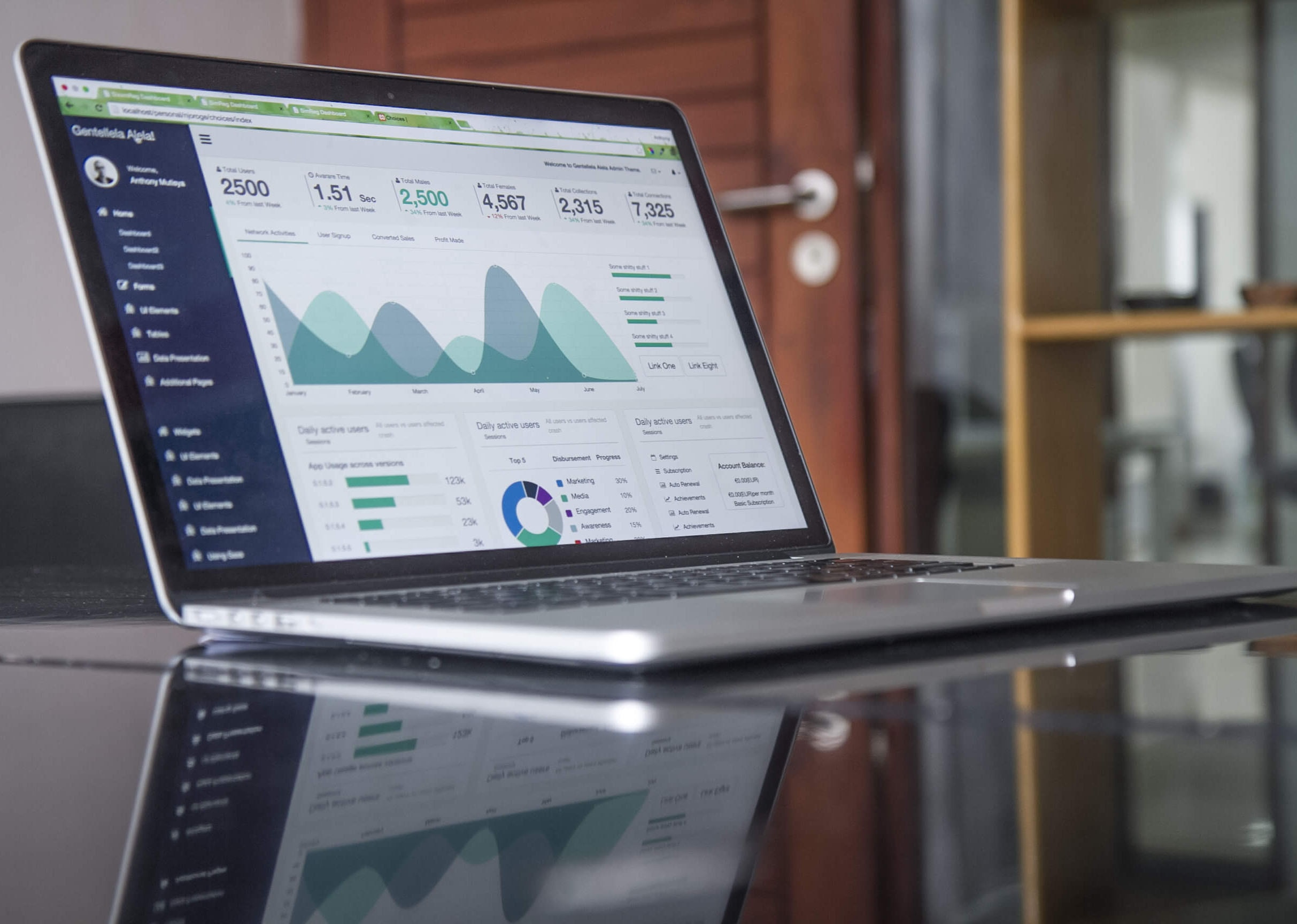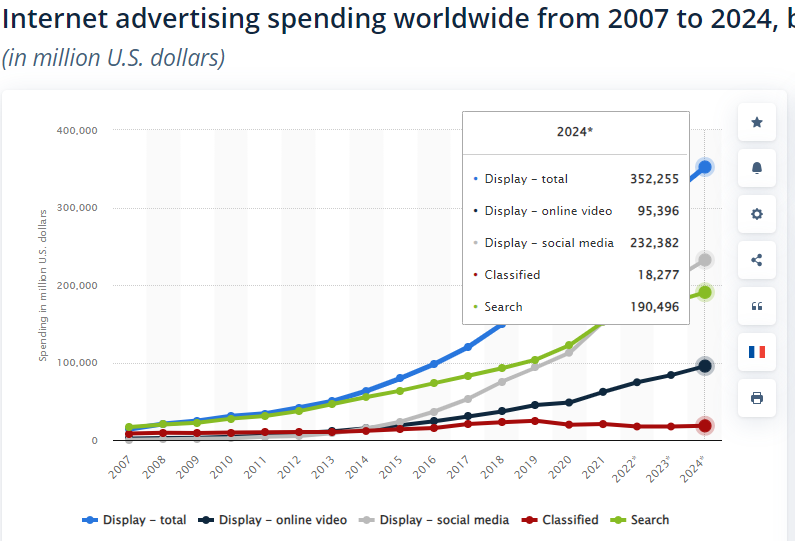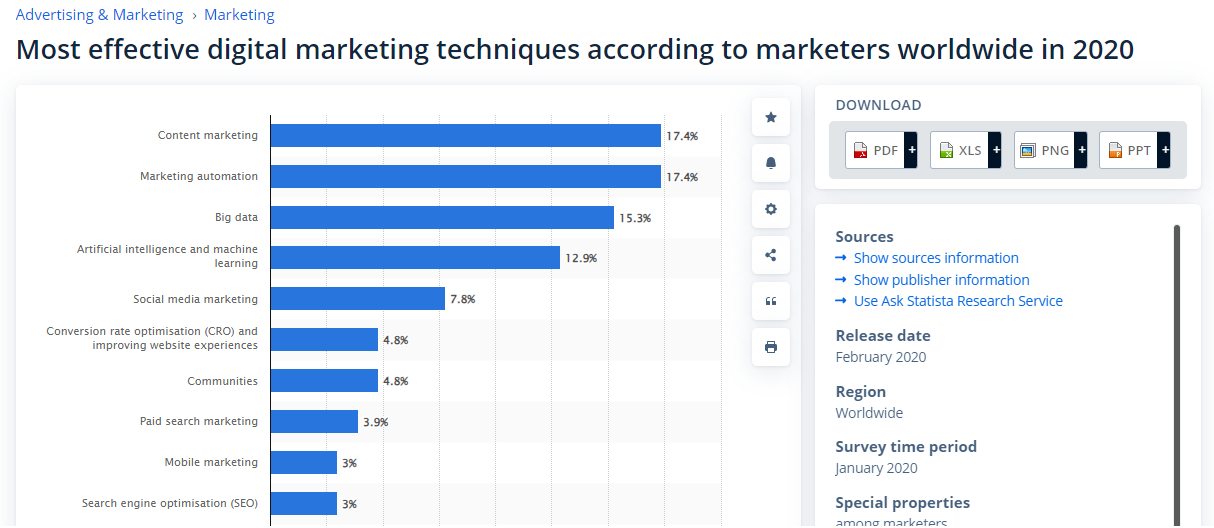
The Future of Search Engine Advertising: AI vs Paid Search Ads
Last update: 7 May 2024 at 12:09 pm
We are amid an exciting transformation in the digital marketing landscape. Amid this shift, marketers rely heavily on digital advertising to become efficient and drive higher ROI.
This combination leads to a dilemma for marketers. They want to extract the best possible outcomes from digital marketing but aren’t sure where to allocate their budgets. Two critical success drivers in today’s digital marketing space intrigue them.
- AI-driven search engines
- Paid search advertising
And this forms the crux of our blog today.
We look at these two powerful strategies for maximum gains from digital marketing. We try to cover these two themes in detail, examining their unique traits, benefits, and drawbacks. Along the way, we will do a comparative analysis of these two digital marketing strategies.

Why is it essential to understand the difference between AI-driven search engine advertising and paid search?
Savvy advertisers get a competitive leg up by understanding the differences between AI-driven search engines and paid search ads. This knowledge is crucial for businesses and advertisers seeking effective search advertising strategies.
They get an advantage in exploring both approaches’ benefits, limitations, and future trends. With this knowledge, businesses can make informed decisions to stay ahead in the ever-evolving landscape of search engine advertising.
So let us get started on this exciting journey!
Understanding AI-Driven Search Engines
Traditional search engine marketing focused heavily on keywords and links to drive rankings for different websites. Artificial Intelligence (AI) seeks to take this one level up and radically affect the digital advertising industry. This amalgamation is poised to deliver users more contextual and immersive search experiences.
Let us look at the impact of AI on search engines.
How AI drives search engine advertising
OpenAI’s GPT-4 language model now powers many search engines like Microsoft Bing. As a result, they can now display search results, not just by keywords (as was the case with traditional search engine optimization). They can now precisely understand the context and intent behind the search queries. As a result, they will get more accurate results for their searches.
This type of generative AI can also result in a customized experience. Their capability to understand user preferences and behaviors helps them deliver intensely targeted information.
The AI search engine collects data from diverse sources, including:
– Searches made previously
– Social media interactions
– Past buying data
Using elaborate algorithms, AI search engines work towards enhancing the efficacy of their predictions. This way, it optimizes customer journeys and boosts the overall user experience.
Advantages of AI-driven search engines
Enhanced understanding of user intent and context
AI-driven search engines possess a deep knowledge of user intent and context. This lets them interpret search queries beyond mere keywords. AI-driven search engines analyze previous search patterns, user behavior, and context. This intelligence can provide more accurate and contextually relevant results.
Personalized search results for improved user experience
A user’s digital footprint encompasses many aspects. These include demographic information, location, and browsing history when building search results based on the search queries. With such personalized search engine ads, fostering deeper connections becomes easy.
Examples of popular AI-driven search engines
Microsoft’s Bing AI is one of the most significant search engines that leverages AI. Its partnership with OpenAI (the parent company of ChatGPT) catapults this search engine to the top of the list of AI-driven search engines.
Launched in January 2023, Neeva AI outperforms ChatGPT on one key aspect. Unlike ChatGPT, it connects to the Internet. This allows the search engine to display references behind the listing and relevant links.
The largest search engine in the world uses generative AI capabilities to bring a conversational experience to the search process. It integrates Bard, built with LaMDA and PaLM family of large language models.
Exploring Traditional Paid Search Ads
As a searcher, you may have seen a standard appearance of the search results. The first few results are tagged as ‘Sponsored,’ followed by the organic search results. This top portion of the search results is powered by Pay per Click (PPC) advertising or paid search ads.
Definition and mechanics of paid search ads
Marketers devise paid search advertising strategies to increase their online visibility and drive targeted website traffic. These ads operate on a pay-per-click (PPC) model. Here, brands bid on specific keywords relevant to their offerings and pay when users click on their ads.
Here is a small synopsis of how it works –
a. The advertiser sets up a campaign on a PPC platform like Google Ads or Bing Ads. They define their campaign goals, target audience, and budget in search engine advertising campaigns.
b. Keyword research and selection are made to trigger ad display.
c. They create compelling and relevant ads that align with the chosen keywords.
d. They set a maximum bid amount for each click on their ad. This bid and other factors like ad quality and relevance determine the ad’s position in the search engine results.
e. When a user searches, the PPC platform runs an auction among advertisers competing for ad placement.
f. If the advertiser wins the auction, the ad is displayed to the user.
g. When users click on the ad, they are directed to the advertiser’s target landing page.
Benefits of traditional paid search ads
Instant visibility and control over ad placement
Businesses can bid on keywords to ensure their ads appear prominently in search engine results pages (SERPs). Doing so boosts their chances of being noticed by potential customers. The Statista report can gauge its popularity. It says that companies worldwide will spend roughly $190.5 billion on search ads by 2024.

Ability to target specific keywords and demographics
Digital businesses can ensure their ads are displayed to users actively searching for products or services they offer with the help of strategic keyword placement. They can also narrow their audience based on age, location, interests, etc.
Limitations and challenges of paid search ads
Rising costs and competition
A key issue with the PPC market is its intense competition and its effect on campaign costs. More businesses are investing in paid search ads. As a result, the bidding competition for popular keywords intensifies, driving up prices. This can make it more difficult for small or budget-conscious businesses to achieve a favorable ROI from paid search ad campaigns.
Ad fatigue and the need for continuous optimization
Over time, users may become accustomed to seeing certain ads, causing a decline in click-through rates. Brands need to take concrete steps to combat ad fatigue. They must continually optimize their ad copy and experiment with different formats to ensure a fresh and compelling experience. They also need to track their campaigns closely to ensure relevance and effectiveness.
A Comparative Analysis
Key differences between AI-driven search engines and paid search ads
The Mechanics
AI-driven search engines excel in their ability to understand user intent and context. This way, it delivers profoundly relevant and personalized search results. They leverage advanced algorithms and machine learning to continuously refine their understanding of user behavior, preferences, and search patterns. This customized approach gives momentum to the overall user experience. It also skyrockets engagement and fosters brand loyalty.
On the other hand, paid search ads give companies immediate visibility and control over ad placement. They offer the advantage of precise targeting through keyword bidding and demographic selection. Businesses can choose specific keywords and optimize their ad campaigns to target users actively searching for relevant products or services.
The cost structure
AI-driven search engines primarily operate on an organic, non-paid model. In this, marketers optimize their web presence to rank higher in search results.
But in paid search, the bid-based model needs ongoing ad placement and click investment. Hence, PPC will be a more expensive ad display strategy than organic AI-driven searches.
The time horizon
AI-driven search takes time to deliver results (1st-page ranking on organic searches). But PPC offers instant rankings boost. They appear above the fold, even above the top-ranked organic search result.
Evaluating the effectiveness of both approaches
Evaluating the effectiveness of both approaches depends on several factors. If your brand focuses on building brand awareness and providing a personalized user experience, then you must use AI-driven search engines. They understand user intent and deliver tailored results. This enhances engagement and increases the chances of conversions.
On the other hand, if your brand needs immediate visibility, control, and precise targeting, traditional paid search advertising is for you.
Considerations for businesses in choosing the right strategy
You need to be clear on three key aspects that determine your choice of these two online advertising strategies
– The target audience,
– The industry landscape, and
– Your chosen marketing objective
It is interesting to note that many businesses vouch for a hybrid approach. In the first stage, they will roll out paid search campaigns for immediate visibility and leads. At the same time, they will devise AI-driven organic search campaigns. These may yield results gradually over time. This will mean that your brand will keep getting a continuous infusion of leads and visibility with a mix of these two methods.
The Future of Search Advertising
Emerging trends and developments in AI-driven search engines
Did you know that more than 80% of marketers across the globe integrate some form of AI into their online marketing activities? This confluence of AI and marketing will result in revenue generation of $107 billion by 2028.
These statistics provide a peek into the emerging trends shaping the search advertising landscape shortly.
The key trend we see in the future is advancement in using Natural Language Processing (NLP) in digital marketing. This will help searchers get more personalized and precise search results. Some other trends worth noting here are –
AI in content development
– Come up with better content topics
– Identify trending topics
– Suggest overall SEO strategy
– Human writers can polish AI drafts. This way, they lend human touch and verify the content for correctness and relevance to meet Google EEAT protocols.
AI in voice search
– Content optimized for conversational long-form queries
– Content tailored for Featured Snippets
– Optimization for local search
AI in image search
– Identifying relevant images, which is not possible via keyword-based image search
– Applying deep learning patterns to find images relevant to the search query
Innovations in paid search ads and their integration with AI
Enhancing the payout from PPC campaigns is the biggest challenge for marketers. And AI can enable this advantage at many levels. Let us check out how AI can power up PPC.
Keyword Research
AI helps uncover keywords that human marketers may not discover. Be it niche terms or long tail semantically identical keywords; AI has the power to unearth these. By doing so, AI PPC can deliver unmatched campaign value. It can automatically analyze past data at scale and performance metrics to power up keyword research.
Bid optimization
AI can facilitate dynamic and real-time adjustments to the bids. This ensures maximum ad placement at minimum costs. It can adapt to shifts in market trends and user behavior. This intel lets it optimize budget allocation for better RoI.
Better A/B testing
Tracking variations in ad copies is a crucial KRA for marketers. AI can help examine the performance of various ads or landing pages to determine the most impactful interpretation. It also helps quickly create landing page designs with minor tweaks to perform A/B testing.
Ad fraud detection
Flagging fraudulent clicks like masking and bad bots via continuous real-time data monitoring is a skill not many humans can excel at. But with AI, separating genuine user interactions and false clicks becomes simplified and instant.
Potential convergence of AI and paid search ads
As technology advances and search engine algorithms evolve, we may witness a convergence of AI-driven search engines and paid search ads. Marketers will leverage AI-powered enhancements in paid search ads, such as dynamic ad personalization and improved targeting algorithms. These will help further optimize the effectiveness of these ads.
This integration can offer businesses the best of both worlds. Marketers can harness the power of precise AI-driven insights with the immediate visibility and control paid search ads provide.
To summarize the discussion, it will not be wrong to say that a hybrid approach integrating AI insights with paid search ads will be the key to digital advertising success in 2023 and beyond. This strategic blend may allow businesses to make their search advertising efforts more rewarding.
Conclusion
The only way forward for today’s marketers is to immerse themselves in the fascinating realm of AI and digital marketing strategies. By doing so, companies can look forward to a thrust in efficiency and subsequent growth to the business bottom line.
AI can power up processes, run tests quicker, identify real-time patterns, and adjust accordingly. These USPs would have been hard to achieve with human marketers alone.
No wonder 17.4% of respondents say that marketing automation has emerged as the most effective marketing technique along with content marketing.

The question remains: As a marketer, are you prepared enough to embrace the power of AI to skyrocket outcomes from search engine marketing campaigns? After all, your competitors are already on it!
So, leverage AI to know the customer’s next move and accelerate the customer journey. Connect with highly competent digital marketers only on Sortlist. The digital platform helps align the brightest talent in digital marketing with specific business needs.





